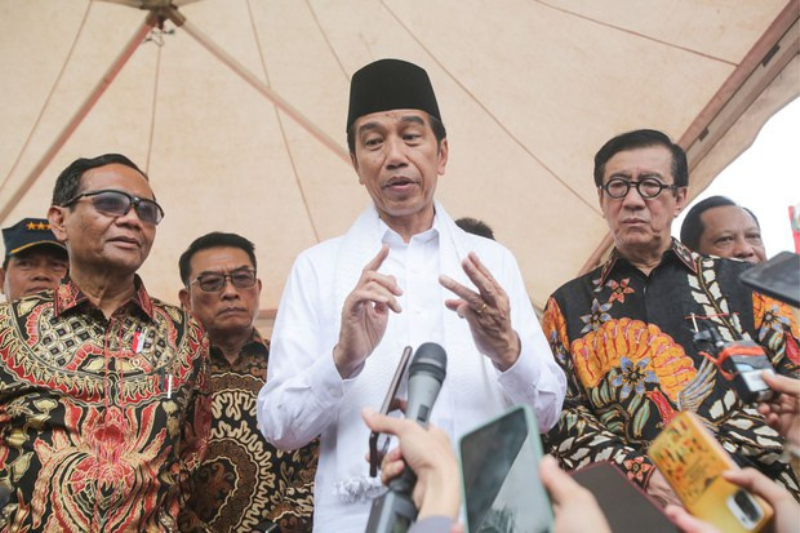

president widodo commits indonesia to a future free of human rights violations
In the shadows of Indonesia’s rich cultural diversity and natural beauty is a dark past marred by ‘bloody’ human rights violations. The country has witnessed midnight executions and massacres. Till now families are lamenting the pain of the bloody violence of the yester years.
One time political prisoner, Martin Aleida’s book God Weeps sheds light on crimes against humanity in Indonesia 1965-66. It accounts stories of victims of human rights abuse, their families affected by the 30 September Movement, a coup attempt that the Indonesian army command blamed on rogue left-wing officers and the PKI (Indonesia’s most potent political party).Those connected to the PKI and its affiliate organizations, who had nothing to do with the uprising, were tormented, tortured, physically abused, and imprisoned without trial, and murdered.
Aleida quotes Ben Mboi, the late former governor of East Nusa Tenggara and army general, “I feel shame to be part of the generation of the actors of this crisis.” Reports state that in October 1965, the Indonesian military acted to bring an end to a spontaneous uprising by the people, an explosion of communal clashes which resulted in bloodbaths across the country. This led to common Indonesians rising up in anger against the communist neighbors.
The CIA described the Indonesian events as “one of the worst mass murders of the 20th century”. Regional experts believe the military implemented the coup in October 1965, under the guidance of Soekarno and the U.S. The military had received training and funding from the United States. The military was driven by fears that Soekarno and the PKI were using the Ganyang Malaysia (Crush Malaysia) campaign to weaken the military’s monopoly of armed forces.
Indonesia has also witnessed violence against indigenous communities, religious minorities, and activists facing persecution and displacement. The military’s brutal campaign in East Timor, the Aceh conflict, and other instances of violence against civilians further stained Indonesia’s human rights record.
President Joko Widodo, in January 2023, expressed deep regret of the killings and gross human rights violations in the tumultuous post-colonial past. He said the 1965 events were a travesty of justice. Widodo vowed that no gross human rights violations will occur again in Indonesia.
He traveled travelled to Rumoh Geudong, a site of torture of locals by military personnel in a 1989 regional conflict. The president also launched a range of non-judicial settlements over major human rights violations. The Indonesian government will restore civil rights of victims and family members, including a return from overseas exile, monthly cash allowance, benefits in health, education, food, and housing. These initiatives were also launched in Lampung, Palu, Wamena, Semarang, and Jakarta.
It should be noted that President Widodo has taken significant steps to address the nation’s past and promote human rights. He has implemented legal reforms to safeguard human rights and strengthen the rule of law, and pursued accountability for those involved in past atrocities.
Just Stop Oil - the British group famous for its protests against climate change - has decided to change tactics…
Under HHS Secretary Robert F. Kennedy Jr. the Department of Health and Human Services starts its change process by firing…
Glove manufacturer YTY has raised alarms over forced-labour practices that could be of a “systemic nature” at one of its…
The climate crisis in Iraq represents not just an environmental emergency, it is also an important humanitarian crisis affecting large…
In a major update, a BBC correspondent has been arrested and deported from Turkey after reporting on the ongoing protests…
Secretary Robert F. Kennedy Jr. announced on Thursday that the U.S. Department of Health and Human Services will restructure with…
This website uses cookies.
Read More